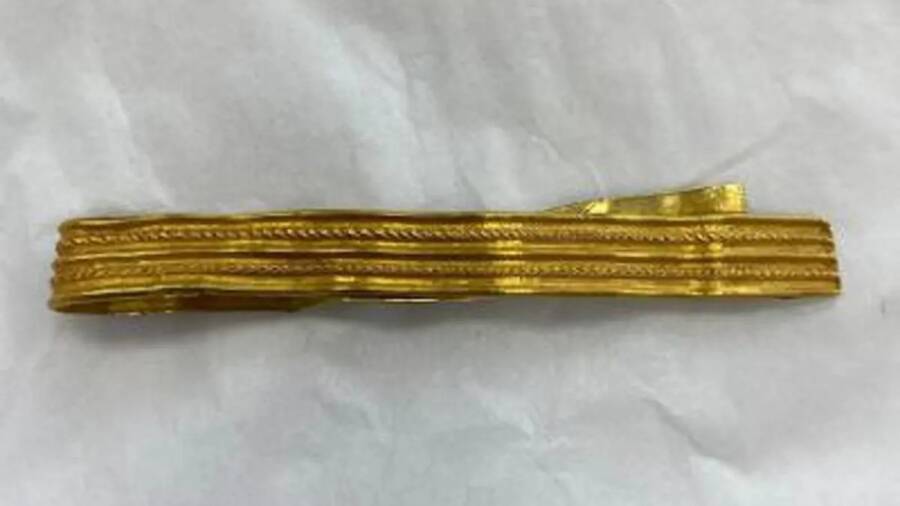The 12-Year-Old Who Found A Rare Roman Bracelet While Walking His Dog

Brannan FamilyAmanda and Rowan Brannan found the bracelet while walking their dog in Pagham, England.
In 2022, 12-year-old Rowan Brannan took his dog for a walk, but what started as a normal routine soon became an extraordinary archaeological discovery.
Rowan was walking with his mother, Amanda, and their family dog when he noticed a golden gleam on the ground. Despite his mom’s initial suggestion to leave it alone, Rowan insisted the object was real gold and convinced her to let him take it home for further investigation.
It’s a good thing he was so persistent.
The family took the gold piece to a local Finds Liaison Officer, who confirmed that Rowan had made a significant archaeological discovery. The bracelet was Roman, dating back to the first century C.E. and the period of Roman conquest in Britain that began in 43 C.E.
Subsequent analysis by the Portable Antiquities Scheme of the British Museum revealed the artifact to be a “Roman wide-cuff bracelet of armilla type” composed of five parallel moldings. While approximately 150 similar copper alloy examples had been found over the years, Rowan’s discovery was exceptionally rare because it was made of gold.
Only four gold Roman cuff bracelets were recorded in the Portable Antiquities Scheme database.

Chichester District CouncilThe bracelet was likely given to a soldier as a reward for his service.
The bracelet’s historical significance extended far beyond its material value. Experts determined it was likely a military award given to Roman soldiers for acts of bravery, gallantry, and service during the conquest of Britain. Such honors reflected the presence of active or retired soldiers in the area and provided insight into Roman military culture and reward systems.
“This piece will widen our museum team’s understanding of Roman life locally and allows us to tell a different story from the Roman period,” said Adrian Moss, Leader at Chichester District Council. The discovery shed new light on military attitudes and how Roman soldiers were recognized for their valor during this pivotal period in British history.
Shortly after, the Novium Museum in Chichester acquired the bracelet with support from the Arts Council England/V&A Purchase Grant Fund. After careful conservation work, the artifact went on permanent display at the museum on Sept. 10, 2024.





